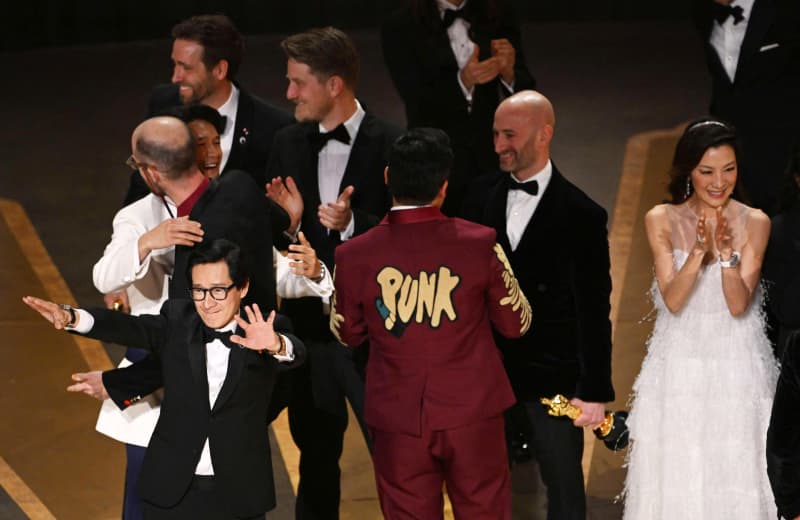
Everything Everywhere All at Once was this year’s award winner. The low-budget science fiction comedy was awarded Best Film.
Can a TV gala be good and boring at the same time? The recent Oscars proved that it can.
95\. There were no slaps on the wrist at the Oscars – thanks in part, I suppose, to the crisis task force set up for the gala. For the most part, the awards went where the pre-cuts had predicted.
And it was actually quite wonderful.
A feeling of certainty hovered over everything this year that has not been experienced in recent years. This was largely the result of the gala having a decent host. After all, several years went completely without a host, which made the gala confusing.
Last year there were three presenters, which didn’t make it any easier.
Movies were the main focus, and that’s a good thing.
Parallel dimensions and anustases
*Everything Everywhere All at Once*, with 11 Oscar nominations, was the biggest advance favorite of the evening, which is a surprising thing in itself. It’s a strange and eccentric science-fiction comedy where you jump in dimensions and fight with anus.
On the night of the gala, the film got everything that was thrown at it: best supporting actor, supporting actress, original screenplay, editing, directing, leading actress and film.
The success of the *EEAAO* is an indication of how much the membership of the American Academy of Motion Picture Arts and Sciences has changed in recent years. For example, many women and non-US members have been invited to join the white men.
This has been seen in the coming years in the fact that films like the Korean class satire *Parasite* and the capitalism-critical *Nomadland* have been awarded at the gala.
Before the gala, I wrote about how no one really knows the recipe for an \”Oscar movie\” anymore.
The traditional war film also got attention
The old generation – i.e. the one that likes melodramas, biographies and war movies – also raised its head in a way at the gala.
The German film *There is nothing new from the Western Front* was the most traditional of the big nominated films at the gala: a classic, aesthetically refined epic about the horror and futility of war. Of course, the film’s message resonated in a time when there was a war in Europe, but that message was not particularly recent.
Oscars were awarded to *Länsirinta* for cinematography, set design, music and best international film. Especially the staging was a surprising victory. For a moment, it seemed possible that the film would take even more points.
*The Banshees of Inisher* with nine nominations, *Elvis* with eight nominations and *The Fabelmans* with seven nominations went completely without an award.
Who needs a TV gala the size of a marathon?
The number of viewers of TV galas is decreasing, because linear television is dying a slow death. The Oscar gala is not immune to this either, whose viewership numbers are far from their peak years.
Nobody seems to know what to do about it. Last year, the gala featured the best cheer moments in film history voted by fans. The number one was a scene from Zack Snyder’s slandered superhero movie *Justice League*.
We gave up on pasted-on cheer moments, but it seems that nothing can be done about the biggest problem, i.e. the duration of the program. The broadcast lasted more than three and a half hours this year. That’s a really long time.
In his acceptance speech, director Daniel Kwan pointed out how movies progress in years, the internet in milliseconds. The Oscars should find a middle ground between the two.
Host Jimmy Kimmel joked about the length of the gala several times, but stretched it himself with unnecessary and unsuccessful program numbers.
I didn’t understand if the answer was a joke or if Malala was surprised by a completely stupid question.
But while watching the strange play, I realized that maybe I can’t claim that \”the movie won at the 2023 Oscars\” after all.
